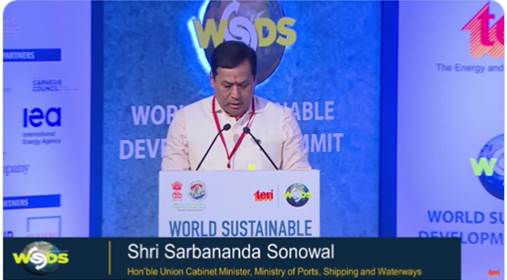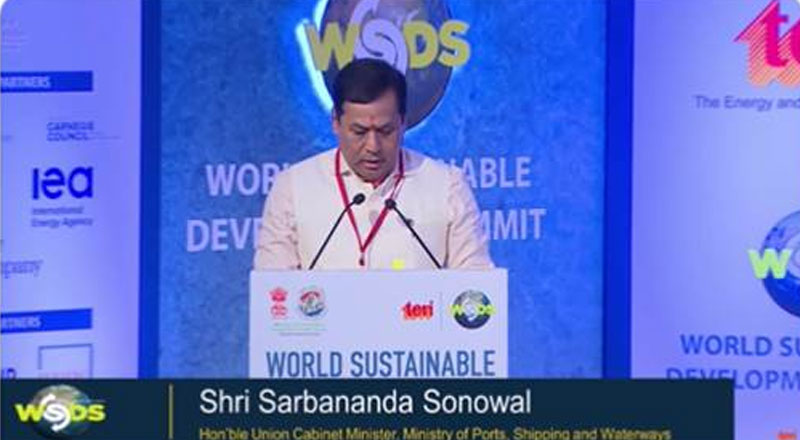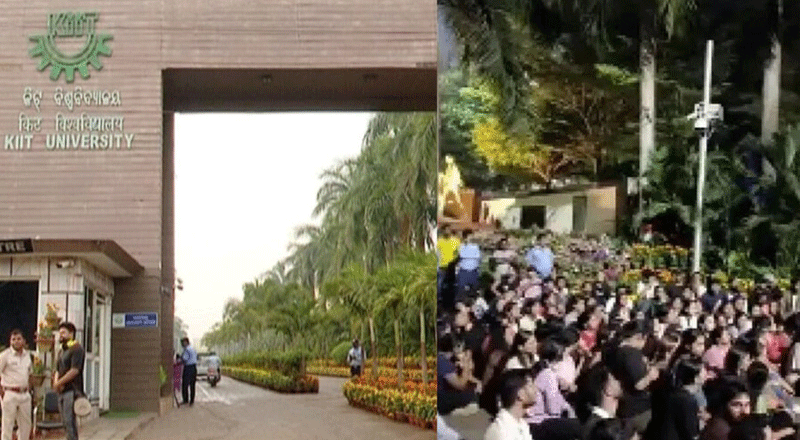Union Minister for Ports, Shipping and Waterways Shri Sarbananda Sonowal has said it is critical to develop a roadmap for greening the shipping sector in India, reduce pollution intensity and evolve strategies to introduce renewable energy and green hydrogen in the shipping sector. Addressing the session on Instruments and Leadership for Inclusive Green Growth at World Sustainable Development Summit 2023 in New Delhi today he said with ‘green growth’ being a priority area in the Union Budget presented in Parliament a few days ago, the focus is firmly on meeting the decarbonization targets for 2030 as well as the net-zero goals for 2070. He said this is applicable to the shipping sector as well. The Budget had also put forth the need to promote coastal shipping as an energy efficient and lower cost mode of transport, both for passengers and freight, through PPP mode with viability gap funding, he added.

Shri Sonowal said with India taking over the G20 Presidency this year and working groups deliberating on clean energy and green transitions, we are re-emphasizing the significance of inclusive green growth as our development strategy. He said to enable this growth we need to pay particular attention to technology transfer which is absolutely essential for green transitions. He said there is also a need to mainstream green transition policies as well as carry out proper assessment of emerging energy and fuel choices.
The Minister said it was a matter of great pleasure for him to be part of The Energy and Resources Institute (TERI) annual flagship event – the World Sustainable Development Summit. As a research institution working steadfastly to find solutions that will make the planet more sustainable, not only through their work on policy, but also through technology interventions that will enable green transitions, TERI holds a vital place in the green growth ecosystem, he added.
Shri Sonowal said The Ministry of Ports, Shipping and Waterways(MoPSW) recently joined hands with TERI to set up the country’s first National Centre of Excellence in Green Port and Shipping at the institution’s field station at Gwal Pahari. He said this National Centre of Excellence brings together the expertise of the Deendayal Port Authority, Paradip Port Authority, VO Chidambaranar Port Authority and Cochin Shipyard Limited and TERI, and will play a key role in developing regulatory framework and alternate technology adoption roadmap for green shipping in India.
The Minister said the shipping sector is both energy and resource intensive and needs an implementation roadmap to achieve energy and resource neutrality. He said initiatives such as the NCoEGPS will provide decision makers at a national and sub-national level with methodology and framework to implement carbon neutrality measures, and to meet the obligations under the Paris Accord.
Shri Sonowal said at present, about 99% of the energy demand from coastal shipping sector is met by fossil fuels, with fuel oil and marine gas oil (MGO). As per IMO, an unchecked measure may take GHG emissions associated with the shipping sector to anywhere between 50% and 250% by 2050 in comparison to 2008 emission levels. He said the IMO overall vision, adopted in 2018 is to phase out greenhouse gas emissions from the industry as soon as possible in this century. He said in line with the IMO’s objective the MoPSW has set target to reduce GHG emission in Indian shipping sector to 30% by 2030.
The Minister said major air pollutants generated by port activities include carbon monoxide (CO), volatile organic compounds (VOCs), nitrogen oxides (NOx), sulfur oxides (SOx), and particulate matter (PM). He said various pollution mitigation measures are under place by the Indian major ports such as adoption to mechanised mode of dry bulk handling, increasing green belt coverage, conversion of diesel RTGCs to E/ hybrid RTGCs and several others. Further, the role of NCoEGPS will be transformational in achieving Vision 2030 pollution mitigation targets, he added.
Shri Sonowal said a green shipping sector is the most pivotal element in evolving a sustainable blue economy. He said a thriving blue economy needs a shipping sector that cuts back on emissions and opts for green fuels, With our multiple initiatives the Ministry is looking forth to decarbonize the sectors so that the 2030 and 2070 targets are achieved.





